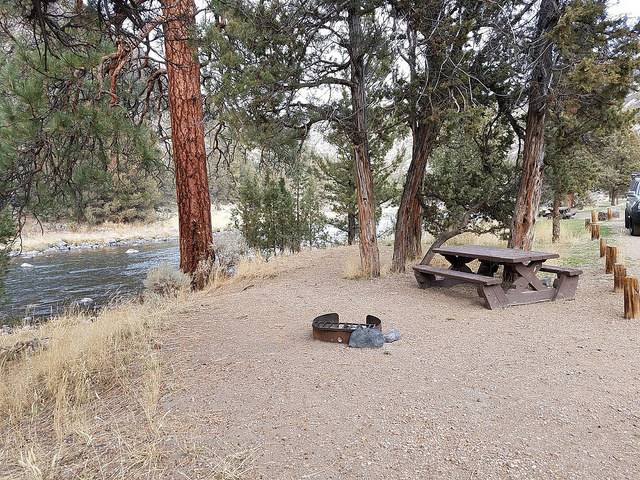
Ah, the great outdoors. There are many folks who can’t get enough of being outside. For those who crave adventures in the sun, working inside under the glare of fluorescent lighting can be torturous. However, we all have to earn a living. For outdoorsy types, turning your hobbies into a business can be a dream come true.
There are many potentially lucrative opportunities for current and aspiring business owners to consider when thinking of opening a business that celebrates the outdoors. There are opportunities out there beyond just a landscaping business, and many of them are simple and fun to own. Here, we’ll highlight three types of outdoor businesses and some things potential buyers should consider before settling on an offer.
RV parks and campsites
RV parks and campsites are responsible for five billion dollars in annual revenue, a number that continues to trend upward. It might seem like no work at all to own an RV park or campsite, but hopeful entrepreneurs should stay on top of the following items to ensure success:
Claim up to $26,000 per W2 Employee
- Billions of dollars in funding available
- Funds are available to U.S. Businesses NOW
- This is not a loan. These tax credits do not need to be repaid
- Maintenance
If your campground has bathrooms, your guests will expect them to be clean. That means daily cleaning and restocking related items like paper towels, toilet paper and trash bags. With bathrooms comes the added responsibility of a septic system, so be prepared for any expenses related to plumbing issues and maintenance. - Amenities
One of the main reasons people choose to visit a commercial campsite is access to amenities. As opposed to camping on public land, where “roughing it” is truly the only option, these campers want a more relaxed, comfortable experience. That can include access to clean, hot showers, groomed hiking trails, recreational activities, and possibly a pool, if weather-appropriate. Plan fun activities for your guests, and you’ll likely generate repeat business. One way to boost your potential for added income is to offer rentals for commonly used camping equipment, such as camping stoves, tents, and more. Many people might not have space to store a large amount of camping equipment, which can deter them from going camping to begin with. Renting out other appropriate recreational equipment, like mountain bikes and kayaks, can also be a draw for lovers of the outdoors who don’t have the means to store or transport their own. - Location and future development
One key consideration in any business is location—and campgrounds are no different. Think about where your campground is located and what important amenities, if missing from your campground, are in the surrounding area. Do your best to determine any future plans for the area surrounding the property—will there be noisy developments in the near future? Changes to the roads and access? These are important things to ask whether you’re buying a campground in Colorado or an RV park in Florida. For example, if a planned road will block convenient access to the campground, or change the remote feel of it, it could affect future business.
Boat dealerships
If you’re aquatically-inclined, consider buying a company that focuses its profits on seafaring vessels. Whether it’s an actual marina, a boat building, restoration, or repair business, or something even wetter, working on the water should satisfy even the most adventurous lake lover. Here are some things to consider before buying a boat dealership:
- Location
For boat dealerships especially, location is important. You’re not going to sell boats to someone who lives in the desert, so it only makes sense to stick to places near the open sea, or near one or more good-sized lakes. You’ll also want to ensure that potential customers don’t have too far to go after they purchase their new boats before they arrive at the nearest dock or marina, and that transport is easy, straightforward, and inexpensive.Another concern would be proximity to competitors. Which brings us to our next point…
- Competition
Is your future boat dealership located in a market saturated with other boat dealerships? If so, you may want to keep looking. You don’t want to have to fight tooth and nail for every single lead or customer. If you choose to buy in a saturated market, find ways to make your business stand out. Add a retail shop or even a bar, especially if you’re located directly on the water.
- Rentals
Not everyone can afford to buy a boat these days. That’s why it’s a good idea to also offer your customers the option to rent a boat. It will drive more repeat business and keep you busy. Additionally, rentals can help keep your boat dealership afloat even in times of recession. And when the boats start to wear, you can always sell them at a discounted price.
When you’re ready to start your search for an outdoor business to buy, make sure to do your due diligence and make a well-informed decision. Follow the steps you would take before buying any business, and don’t get too distracted by having fun. (Or do, we aren’t judging.)
Author Bio
Bruce Hakutizwi is the USA and International Accounts Manager for BusinessesForSale.com, the world’s largest online marketplace for buying and selling small and medium size businesses. Bruce has over 7 years’ experience working within the US business transfer marketplace connecting buyers and sellers.



